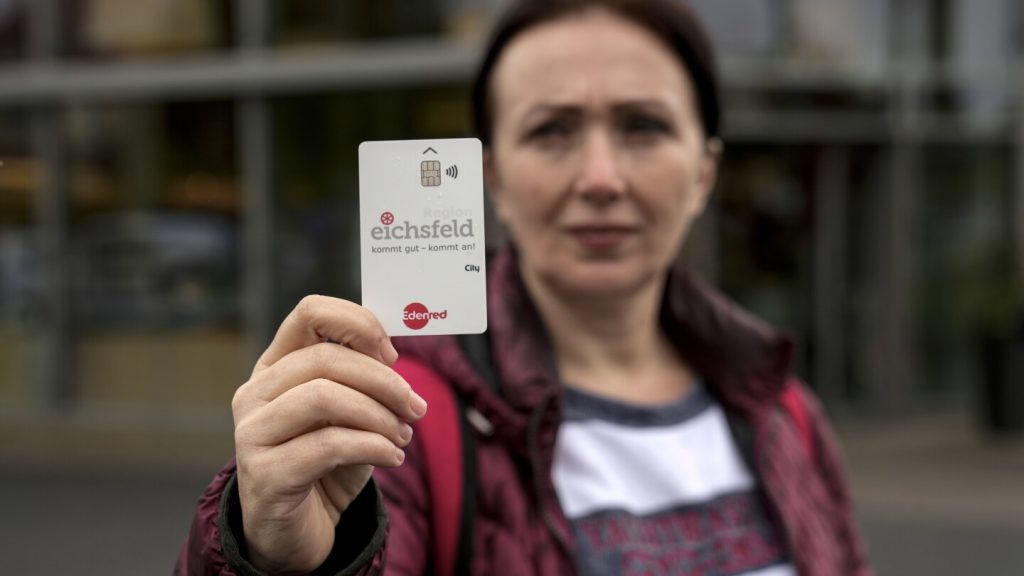The German government has implemented a new regulation requiring asylum-seekers to receive their benefits on a special payment card that can only be used at local shops and for services. This measure is aimed at preventing migrants from sending money abroad. However, migrant advocates criticize the regulation, saying it is discriminatory and may ostracize migrants further. Despite the new rule, experts believe that people fleeing war and persecution will not be deterred from seeking asylum in Germany.
This latest measure comes as Germany has been trying to clamp down on migration in response to increasing arrivals of asylum-seekers and refugees. The country has seen a rise in the number of people applying for asylum, with the largest numbers coming from Syria, Turkey, and Afghanistan. Lawmakers have approved legislation to ease deportations of unsuccessful asylum-seekers, and some countries have been classified as “safe countries of origin” for faster rejection and deportation of asylum-seekers. The far-right Alternative for Germany party is expected to make gains in the upcoming European Union election, capitalizing on anti-migration sentiments.
Eichsfeld, a county in eastern Germany, was one of the first regions to introduce the plastic payment cards for asylum-seekers. While Erdina Laca, an asylum-seeker from Albania, has adapted to the new system, others have faced challenges with using the cards. Some asylum-seekers have left Germany rather than accepting the cards, while others have found work and are no longer reliant on government welfare payments. The local authorities have the discretion to decide on exemptions and the amount of cash asylum-seekers can withdraw, with Eichsfeld opting to provide half of the monthly benefits in cash and the other half on the payment cards.
While the new payment card system may pose challenges for some asylum-seekers who are unfamiliar with cashless transactions, supporters believe that it will incentivize migrants to find work and become self-sufficient. However, concerns remain about the potential discrimination and marginalization of migrants as a result of the new regulation. As attitudes toward migration continue to harden in Germany, the debate over how best to address the needs and integration of asylum-seekers remains complex and contentious. Overall, the implementation of the payment cards reflects the ongoing efforts by the German government to manage and control the influx of asylum-seekers while navigating the political and social challenges surrounding migration.


